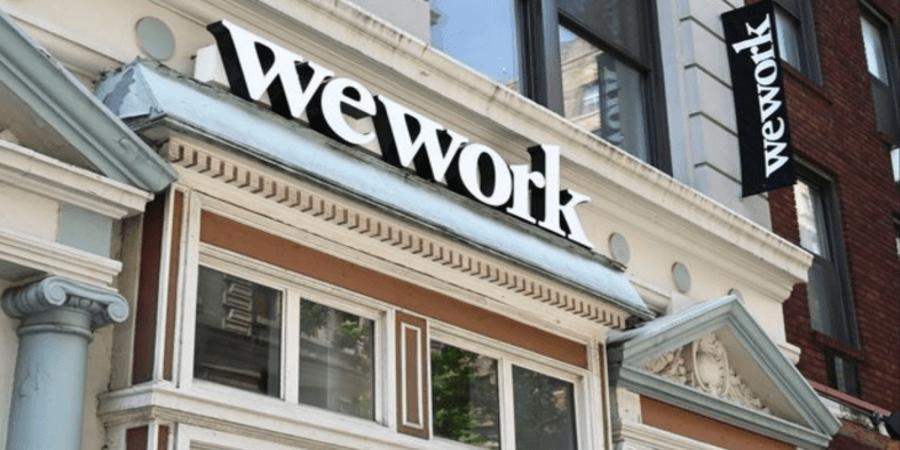WeWork has sent a cease and desist letter to rival Codi in response to the startup’s recent marketing campaign it dubs “WeWont,” TechCrunch has exclusively learned.
In the letter dated October 13, viewed by TechCrunch, WeWork’s Chief Legal Officer Pam Swidler cited “unauthorized use and misappropriation of WeWork’s intellectual property, false advertising and Tortious interference with WeWork’s contractual relations with its member companies.”
Codi, which raised $16 million in a round led by Andreessen Horowitz (a16z) in September 2022, set up booths outside WeWork offices in New York and San Francisco informing companies that their space might be shutting down and offering them to sign on with its rival instead. Codi also set up a “WeWork Relief Fund” offering discounted office space with Codi to those that might be affected by any potential WeWork closures.
For its part, Codi remains undeterred.
“There’s nothing wrong about what we’re doing. I believe it [the campaign] is fair competition,” Codi CEO and co-founder Christelle Rohaut told TechCrunch in an interview today. “We’re doing standard advertising. If anything, we want to provide support to founders and companies who have been impacted.”
Once valued as high as $47 billion, WeWork has faced challenges with a model that involved committing to buying or signing long-term leases in buildings and then not having enough demand from people or businesses to lease or sublease its space.
WeWork not only struggled to bounce back after the COVID-19 pandemic wreaked havoc on its co-working business, it appears to barely be staying afloat. In August, the flexible space provider said that “substantial doubt exists about the company’s ability to continue as a going concern.”
As of Tuesday afternoon, WeWork’s stock was trading at a mere $2.22, down significantly from a 52-week high of $130.80 and from a $520 high in 2021. Also in August, the 13-year-old company announced a net loss of $397 million for the second quarter on revenue of $877 million.
On Monday, WeWork announced it had appointed David Tolley to serve as its new CEO. Tolley, a former Blackstone executive, served as interim CEO of the embattled company since May. He took over that role when former CEO Sandeep Mathrani resigned.
Meanwhile, competitors have arisen attempting to take some of the company’s (albeit dwindling) market share, including Codi and Industrious.
Unlike WeWork, which sold desk space in a shared floor to workers, San Francisco-based Codi does not consider itself a co-working company, according to Rohaut, but rather an office-as-a-service startup. It helps companies find and manage fully private and “turnkey” office space through a managed marketplace.
“A lot of our customers come from co-working and WeWork because they graduate from it at some point,” she added. “They want to get their own culture, they want to have their own space, and we facilitate that.”
The startup began its “WeWon’t” campaign on August 20 after receiving inbound from companies and founders who were affected by WeWork shutting down buildings, Rohaut said.
In its cease and desist letter addressed to Rohaut, WeWork wrote: “We have learned that Codi, itself a provider of coworking space founded years after WeWork, has been making unauthorized uses of the WEWORK Brand and false and misleading statements about WeWork and its offerings to unlawfully solicit WeWork members.” The letter accuses Codi of infringing WeWork’s brand and engaging in misleading advertising by claiming to offer a discount to “the first 50 WeWork members moving into a Codi space.”
WeWork also alleged that Codi’s campaign is “rife with false and misleading statements about WeWork’s offerings,” including “disparaging” language suggesting that WeWork offices are “far from where most people live,” and that the company “does little to serve local communities directly.”
WeWork also alleged that Codi’s allegations that certain WeWork locations are closing are false and that it has not acquired the necessary permits to post signage and staff outside of its offices in New York City.
The letter requested that Codi “immediately and permanently remove and discontinue all use of and references to the WeWork Brand in any form, format or style, including without limitation uses of the WeWork trademark and any confusingly similar terms such as stylized renderings of the term ‘WeWont.’ ”
TechCrunch has reached out to WeWork and will update this story if/when we hear back.
Got a news tip or inside information about a topic we covered? We’d love to hear from you. You can reach me at maryann@techcrunch.com. Or you can drop us a note at tips@techcrunch.com. Happy to respect anonymity requests.
Source @TechCrunch



